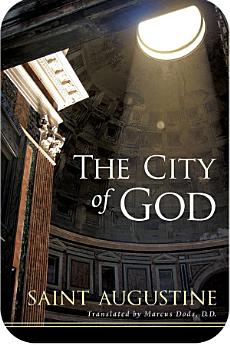The City of God
মে’ ২০২২ · Hendrickson Publishers
ইবুক
832
পৃষ্ঠা
family_home
যোগ্য
info
reportমূল্যাংকন আৰু পৰ্যালোচনা সত্যাপন কৰা হোৱা নাই অধিক জানক
এই ইবুকখনৰ বিষয়ে
16 centuries ago, the greatest empire the world had ever seen, The Roman Empire, symbolically, with the sack of its capitol, the eternal city of Rome, died. It was the end of 1,000 years of civilization by the hands of barbarian hordes from Germania. Many Romans argued at the time that the Empire was crumbling because the ancient gods had been displaced by the now official-and dominant-Christian faith. The City of God is a rebuttal of this belief-but that is far from all that it is. In addition to being an apologetic work of Christian influence, is also one the most important theological constructions on theological anthropology (esp. human depravity, political instability) and the glory of God, of his kingdom, his "City" his righteousness. Moreover, the book is perhaps the most important and groundbreaking political philosophy the church has yet to produce. Second only to Augustine's Confessions in popularity, and spreading a wider theological net than Augustine's De Trinitate The City of God is the greatest and most comprehensive of Augustine's works. It is impossible to understand his thought, or its trajectory without this work. Now bound in a reader friendly design and size, and printed on straight white, and semi-gloss pages this edition is excellent for both a straight read of the text, or a critical study of it.
এই ইবুকখনক মূল্যাংকন কৰক
আমাক আপোনাৰ মতামত জনাওক।
পঢ়াৰ নির্দেশাৱলী
স্মাৰ্টফ’ন আৰু টেবলেট
Android আৰু iPad/iPhoneৰ বাবে Google Play Books এপটো ইনষ্টল কৰক। ই স্বয়ংক্রিয়ভাৱে আপোনাৰ একাউণ্টৰ সৈতে ছিংক হয় আৰু আপুনি য'তে নাথাকক ত'তেই কোনো অডিঅ'বুক অনলাইন বা অফলাইনত শুনিবলৈ সুবিধা দিয়ে।
লেপটপ আৰু কম্পিউটাৰ
আপুনি কম্পিউটাৰৰ ৱেব ব্রাউজাৰ ব্যৱহাৰ কৰি Google Playত কিনা অডিঅ'বুকসমূহ শুনিব পাৰে।
ই-ৰীডাৰ আৰু অন্য ডিভাইচ
Kobo eReadersৰ দৰে ই-চিয়াঁহীৰ ডিভাইচসমূহত পঢ়িবলৈ, আপুনি এটা ফাইল ডাউনল’ড কৰি সেইটো আপোনাৰ ডিভাইচলৈ স্থানান্তৰণ কৰিব লাগিব। সমৰ্থিত ই-ৰিডাৰলৈ ফাইলটো কেনেকৈ স্থানান্তৰ কৰিব জানিবলৈ সহায় কেন্দ্ৰত থকা সবিশেষ নিৰ্দেশাৱলী চাওক।








